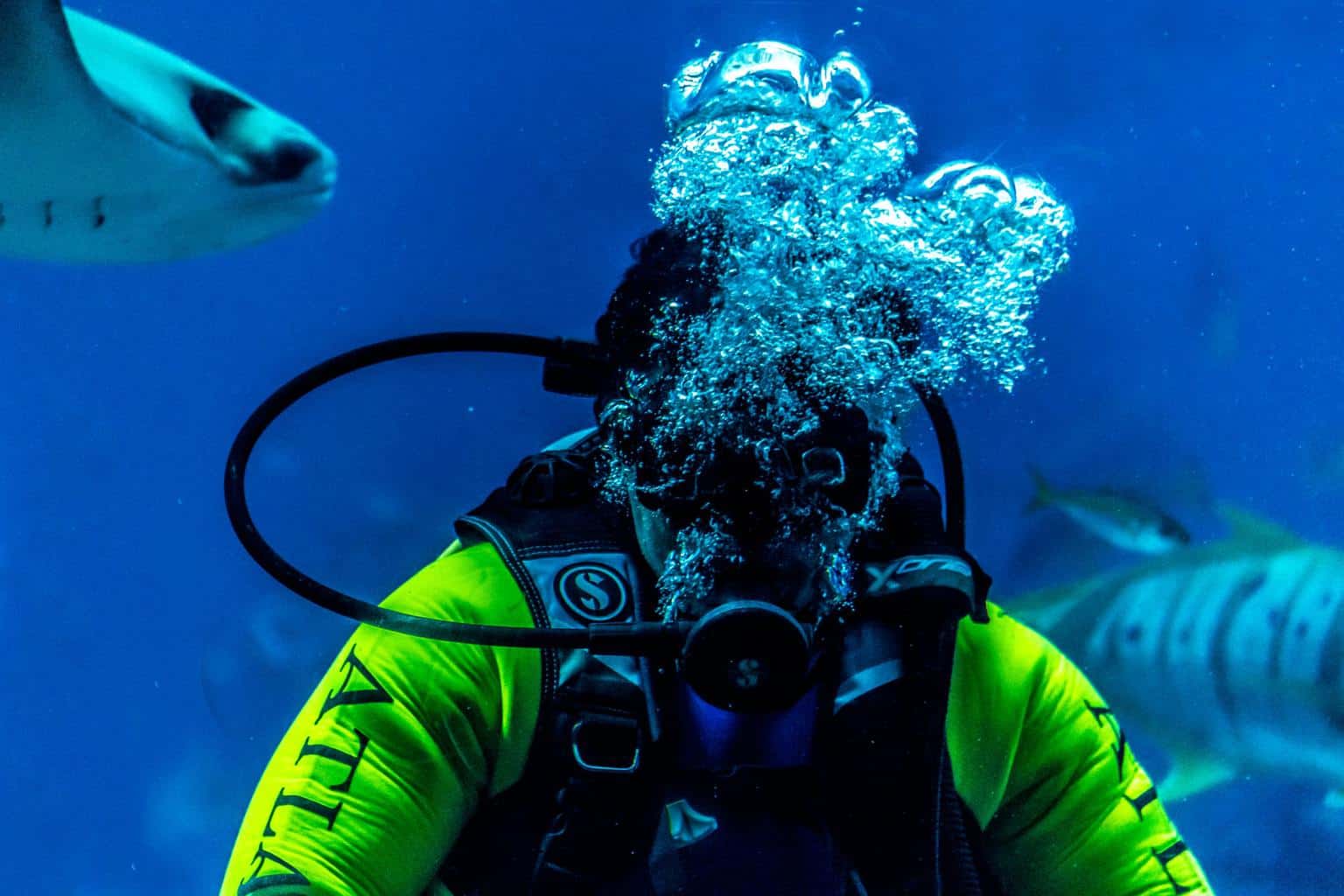Some people think of scuba diving as an extreme sport requiring high fitness levels and a perfect physique.
Generally, it’s a sport that anyone in reasonable fitness and health can enjoy.
So in simple terms, the answer is no; there is no maximum weight limit for scuba diving.
However, if you’re of a larger body type, you might wonder if there is a maximum weight limit for scuba diving.
That said, being overweight can reduce your fitness levels and increase your risk of health problems – both vital factors that can impact your ability to dive safely and have fun underwater.
This article explains why being overweight can be a risk factor for scuba diving and what you need to know before getting started.
- Bodyweight and Scuba Diving
- Is It Safe to Scuba Dive if I’m Overweight?
- Can I Learn to Dive if I’m Overweight?
- Equipment Considerations
- How to Stay Safe if You’re Overweight (but Medically Approved to Dive)
- COVID-19 Coronavirus and Scuba Diving
- Are There Any Positives to Being Larger When It Comes to Scuba Diving?
- Conclusion
- You Might Also Like…
Disclosure: this post contains affiliate links (clearly marked with ), which means we may earn a commission if you buy something through them, at no additional cost to you.
Bodyweight and Scuba Diving
There isn’t an absolute weight limit for scuba diving.
Still, essential factors often related to weight can have severe implications for diving safely and enjoyably.
Overweight and Obesity are becoming more common, so you won’t be alone wondering about your weight and scuba.
In the United States, the WHO states that 67.9% of the population is overweight.
Possibly not all of these people will be able to scuba dive, but a substantial percentage will undoubtedly be fine.
As we discuss the various issues, you should always keep in mind that it is crucial to consult a diving physician if you are concerned about your medical suitability or fitness to dive safely.
Is It Safe to Scuba Dive if I’m Overweight?
Safety is everything when scuba diving. As a heavy diver, you should keep the following considerations in mind before embarking on your scuba journey.
General Health
Being overweight doesn’t necessarily mean that you can’t scuba dive, but problems often associated with your higher bodyweight might.
We could be talking about high blood pressure or cholesterol, diabetes, asthma, and cardiovascular diseases.
All of these conditions can pose a risk when diving, so you should discuss them with your doctor before diving.
Your Fitness Level
If you are overweight but otherwise healthy, you will also need to consider your general fitness level.
Scuba diving requires some level of physical exertion.
For example, lifting and carrying scuba equipment and swimming both underwater and on the surface.
These activities are a normal part of scuba diving. Still, you’ll also need to be able to react quickly if a sudden need arises, such as an emergency or an unexpectedly strong current.
The buddy system is also an essential part of diving that relies in part on fitness.
In this context, it’s necessary to consider how your physical condition and stamina might impact your ability to provide assistance or emergency help to yourself or your buddy if required.
And of course, your enjoyment is an essential factor!
Consider how much fun walking with equipment or climbing boat ladders will be if you are overweight or unfit.
Weight belts and scuba cylinders are heavy, surface swims, or swimming in currents can be tiring.
So, even losing just a few pounds can make a big difference!
Risk of Decompression Sickness (DCS)
Decompression Sickness (DCS), also known as “The Bends”, is the term used to describe the illness or adverse effects on the body caused by the inert nitrogen gas that our bodies have absorbed during diving coming out of solution too quickly.
This nitrogen can form bubbles in our tissues or bloodstream and be extremely harmful.
DCS can occur, for example, by breaking the limits of dive tables and computers, by ascending too quickly, or by exposing yourself to some of the predisposing factors that make your body more susceptible.
Your physiology can also make you more likely to suffer.
For example, increased fat content in the body can make DCS more likely to occur. Nitrogen builds up more slowly in fat tissue and takes longer to dissipate.
An obese person may have a more significant inert gas load during a dive than somebody who has less body fat.
Therefore, those with increased body fat have a greater risk of developing DCS.
It’s essential to recognize that dive computers and tables have been designed based on research carried out on people that are in a healthy weight range.
They have not been adjusted based on body fat, which might increase DCS risk in obese divers if they are not used with caution.
Can I Learn to Dive if I’m Overweight?
Whether you’re learning to dive for the first time or taking part in an advanced diving course, your instructor will need you to complete a medical form.
Training agencies such as PADI, SSI, or NAUI use an evaluation form to screen for medical conditions that could be problematic while diving.
For example, the PADI course prerequisites for the Open Water Diver course are that you are:
“Able to swim; medically fit for diving.”
Many students have trouble with the swim test that is a mandatory part of the course, so it might be worth having a practice beforehand if you’re not a strong swimmer.
It’s vital for the safety of yourself, your instructor, and fellow divers that you complete this medical form honestly!
If you have any concerns or doubts, it would be best to discuss these with a diving doctor before starting the course to avoid disappointment or delay.
Besides relevant medical factors, the form also assesses your general physical suitability by asking about your general fitness.
It states that you should not:
“… struggle to perform moderate exercise (for example, walk 1.6 kilometer/one mile in 14 minutes or swim 200 meters/yards without resting), OR have been unable to participate in a normal physical activity due to fitness or health reasons within the past 12 months.“
Suppose you believe your weight will prevent you from walking 1.6 kilometers/one mile in 14 minutes or swimming 200 meters/yards without resting.
In that case, you should embark on a beginner’s fitness program before signing up for your scuba course.
If you’re not sure that you’ll enjoy scuba diving due to your weight, the introductory “Discover Scuba” program by PADI or any of the other respectable scuba agencies is a great place to start.
This program is carried out in a calm environment designed for complete beginners, so you can see how you get on with scuba equipment and how you feel in the water without the pressure of a full course.
Everyone is different, and ultimately only a medical professional can decide if there is a health question.
Equipment Considerations
As an overweight diver, it’s worth keeping in mind the availability of suitably-sized equipment, especially if you’re relying on using rental gear from a dive center when traveling.
They might not always have in stock many of the larger sizes of wetsuits and BCD’s – so it’s best to check and book in advance.
That said, many divers find it preferable to invest in their kit as soon as possible. Having your personally-chosen equipment ensures you will be comfortable and familiar with it while diving.
Of particular interest here is the weight system. As a general rule, “fat floats”!
Therefore, an overweight diver will need more lead to descend from the surface at the beginning of their dive.
Placing a significant amount of lead on a weight belt can be extremely uncomfortable on the back, so we recommend investing in a weight harness that will spread the load up to the shoulders.
How to Stay Safe if You’re Overweight (but Medically Approved to Dive)
Simply put, be cautious, dive within your limits, and have fun!
When planning a dive, consider the dive site and take advice from local guides and instructors first.
They will inform you about potential currents and how challenging the dive is likely to be.
It’s always best not to over-exert yourself on a dive, especially if you are overweight.
We recommend avoiding the more extreme sites and opting for the less stressful or energetic dive sites instead.
Often, these sites can be the most fun and provide the best opportunities for finding smaller critters.
Also, take special care to avoid the contributing factors that could make you more likely to suffer from Decompression Sickness (DCS):
- Stay well hydrated before and after the dive, especially when diving in tropical locations.
- Avoid overexertion during your dive and take it easy immediately before and after.
- Avoid any drugs unless prescribed and approved for diving.
- Avoid alcohol before and after diving.
- Be aware of the effects of smoking and diving health.
- Keep warm. Getting cold on a dive can increase your risk of DCS.
- Consider using Enriched Air Nitrox to reduce your nitrogen load.
- Always dive well within the limits of your computer or dive table.
- Make slow ascents and always carry out a safety stop.
Finally, even though you have passed a medical, it’s important to remember that your health and fitness will change over time.
If you experience any changes to your health or weight, you should get checked over by a doctor to make sure you’re still fit to dive.
Remember that it’s never too late to shift some weight and improve your overall health!
COVID-19 Coronavirus and Scuba Diving
The global pandemic may have significantly reduced or completely stopped diving and other physical activities in your area.
Everyone should consider their general fitness, be cautious, and start diving again slowly, taking into account local guidelines.
You won’t be alone if you’ve gained weight during a lockdown, so it’s a good idea to work on your fitness and lose some pounds before returning to diving!
If you have personally suffered from COVID-19, a diving physician must check you over before you start diving to be sure that everything will be safe.
Are There Any Positives to Being Larger When It Comes to Scuba Diving?
An overweight diver may find that they don’t feel as cold underwater as someone with less body fat.
Fat is an excellent insulator, so you may feel more comfortable with a thinner wetsuit than your slender dive buddy.
Being comfortable in a thinner wetsuit also means you won’t need to carry as much lead – which is a bonus!
However, keep in mind that it’s important not to get cold on the dive. So, if you start to feel a chill in your thin wetsuit, it’s time to swap it for a thicker one.
For larger people, scuba is also a no-impact sport that’s good for the joints.
You may find great enjoyment in the increased range of movement and weightless feeling that being underwater offers you.
Conclusion
Your suitability for diving depends on far more than just your weight, so there is no weight limit for scuba.
That said, it’s important to note that there are several issues related to a high bodyweight that can affect your ability to scuba dive safely and enjoyably.
Your general physical fitness, health, and abilities need to be considered.
If you have any concerns with these, you should consult with a diving physician before diving or signing up for a course.
Sensible caution will ensure that you can enjoy scuba diving safely and get maximum pleasure from delving into the underwater world!
You Might Also Like…
-

How Do Scuba Divers Drink Water? 5 Possible Ways (+7 Tips)
-

How Long Can Scuba Divers Stay Underwater? (+9 Limiting Factors)
-
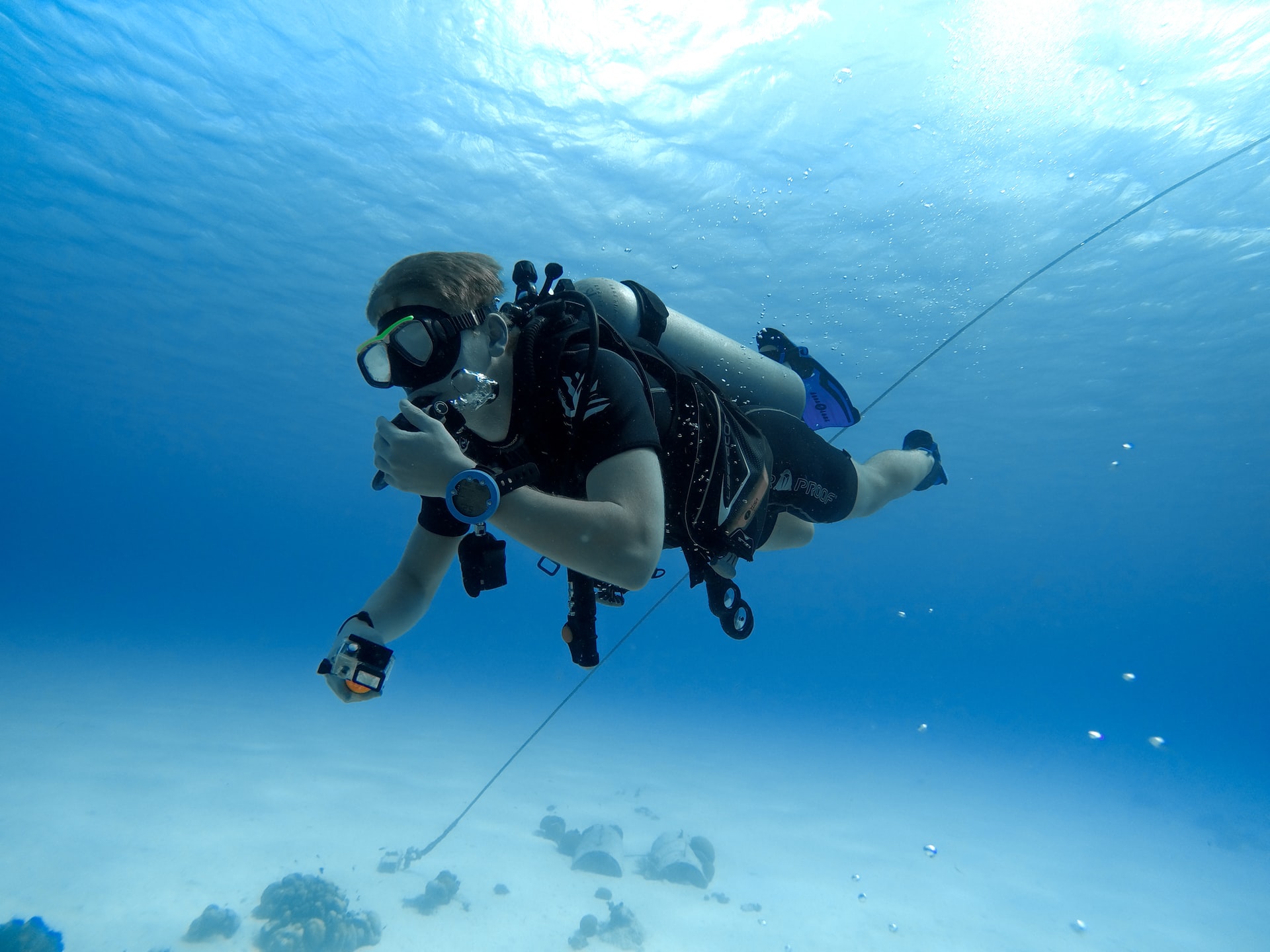
Are Scuba Divers Athletes? All the Facts (+New Competitive Forms)
-
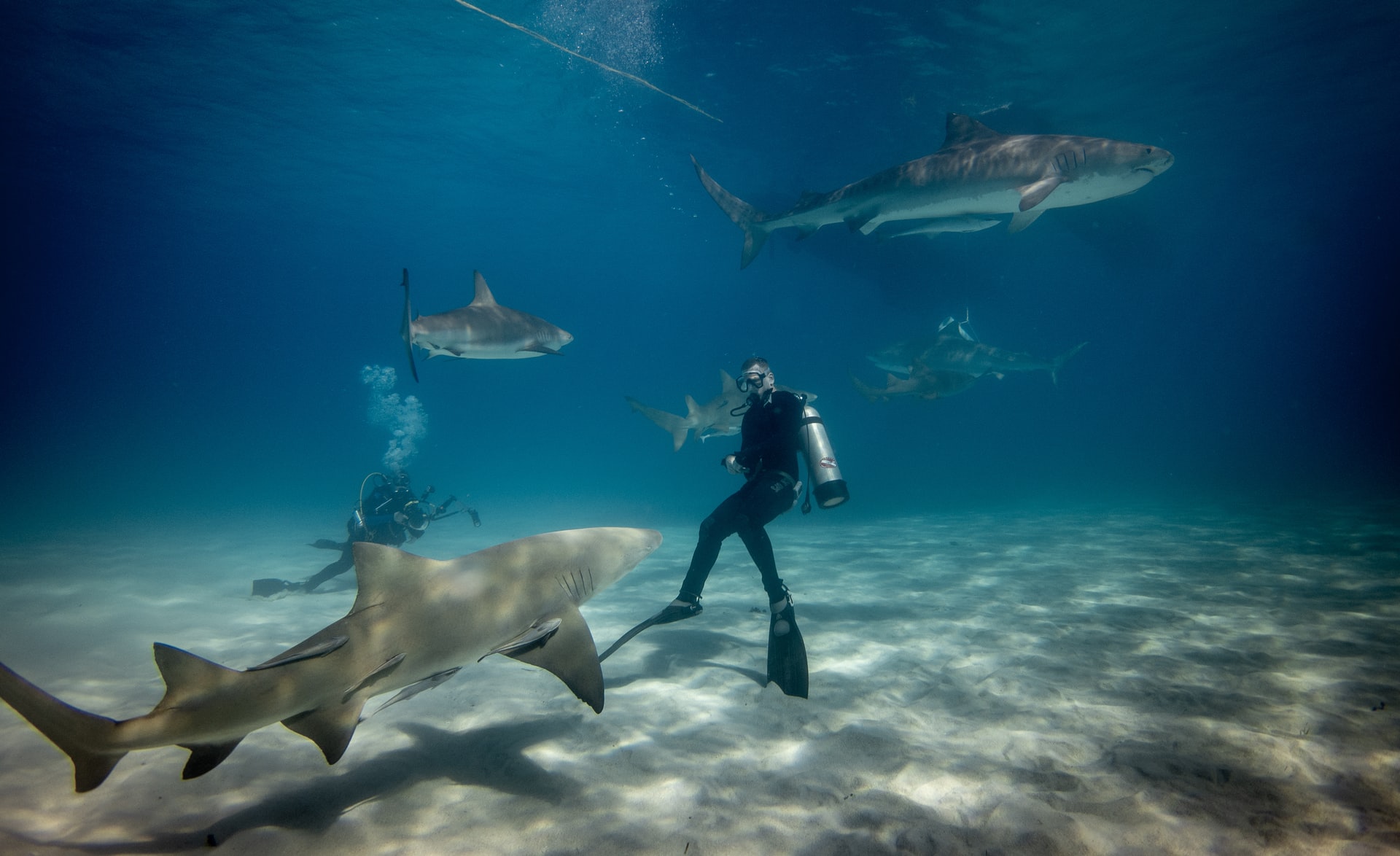
Are Sharks Scared of Scuba Divers? (What Every Diver Must Know)
-
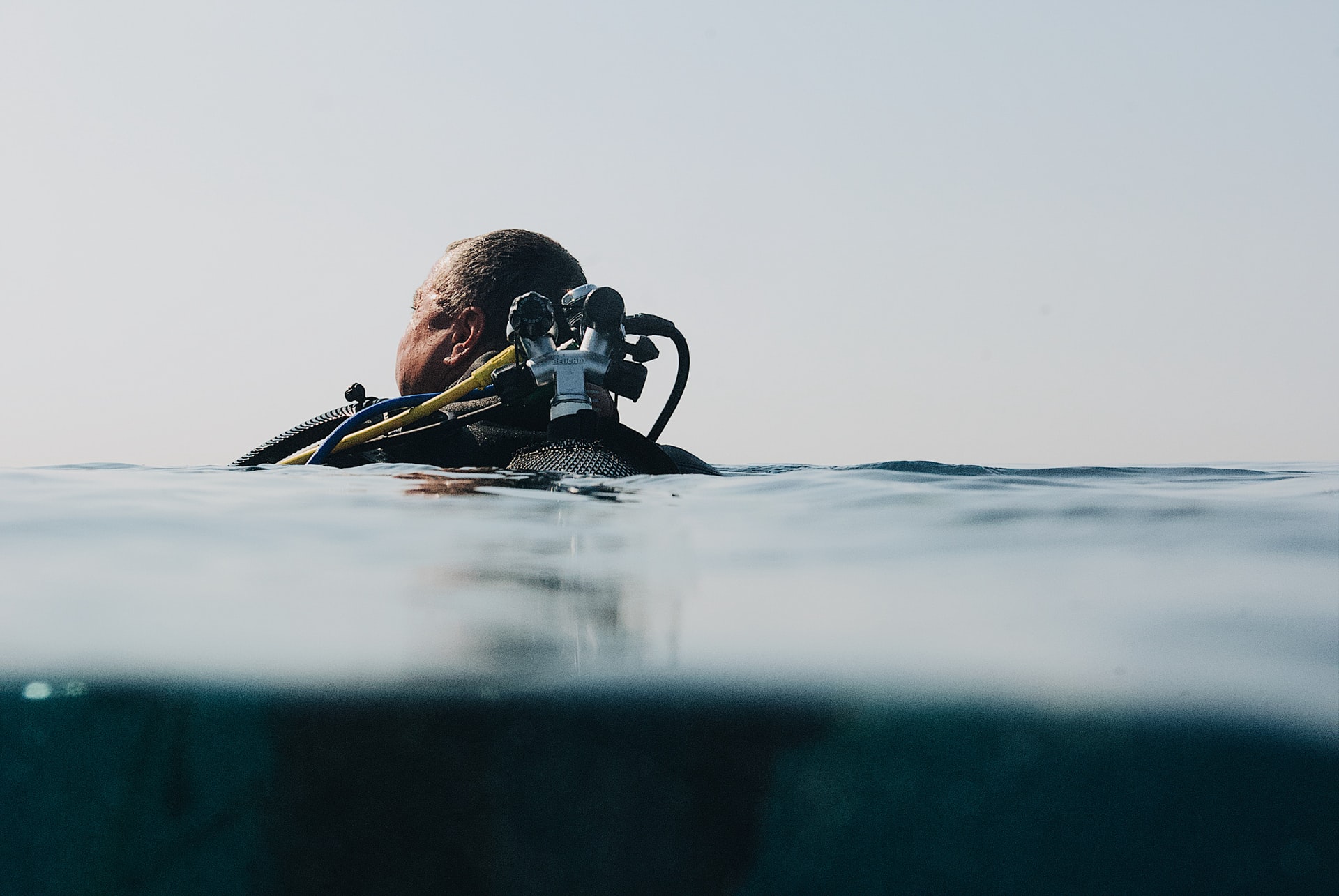
Who Should Not Scuba Dive? 17 Reasons (Every Diver Should Know)
-
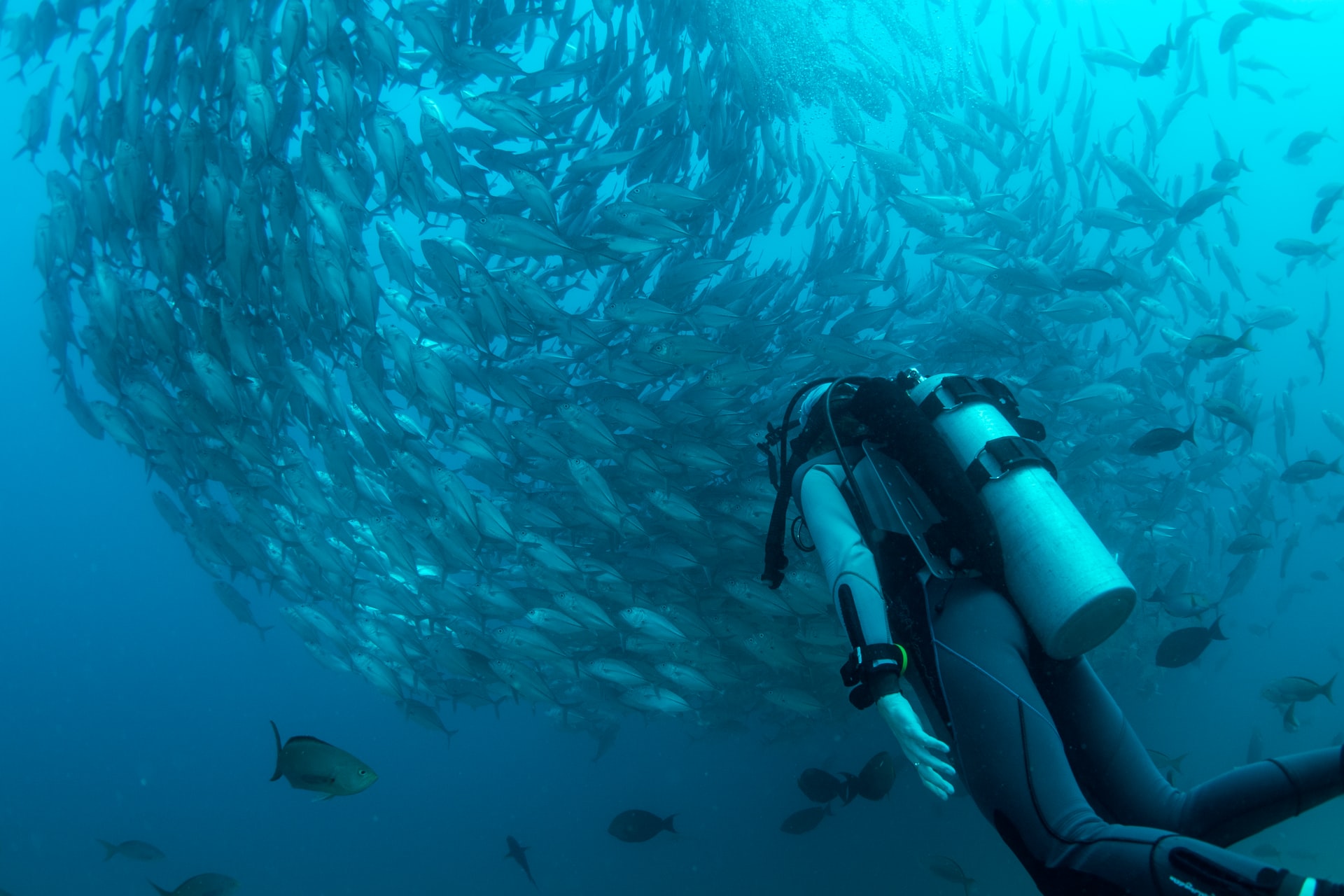
Should I Be Scared of Scuba Diving? 8 Common Fears (Debunked)
-
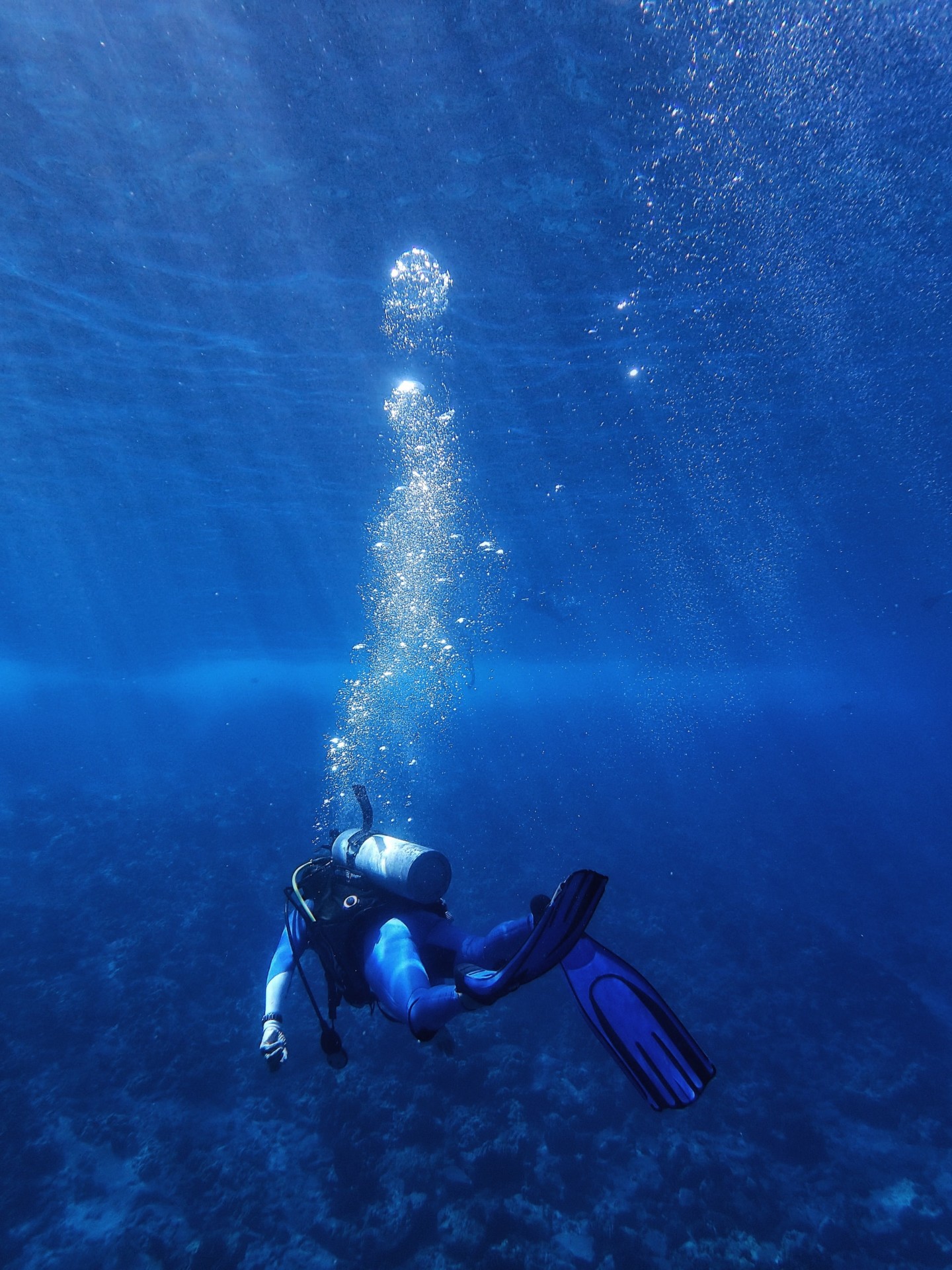
Why Do Scuba Divers Use More Air at Depth? (+4 Practical Tips)
-
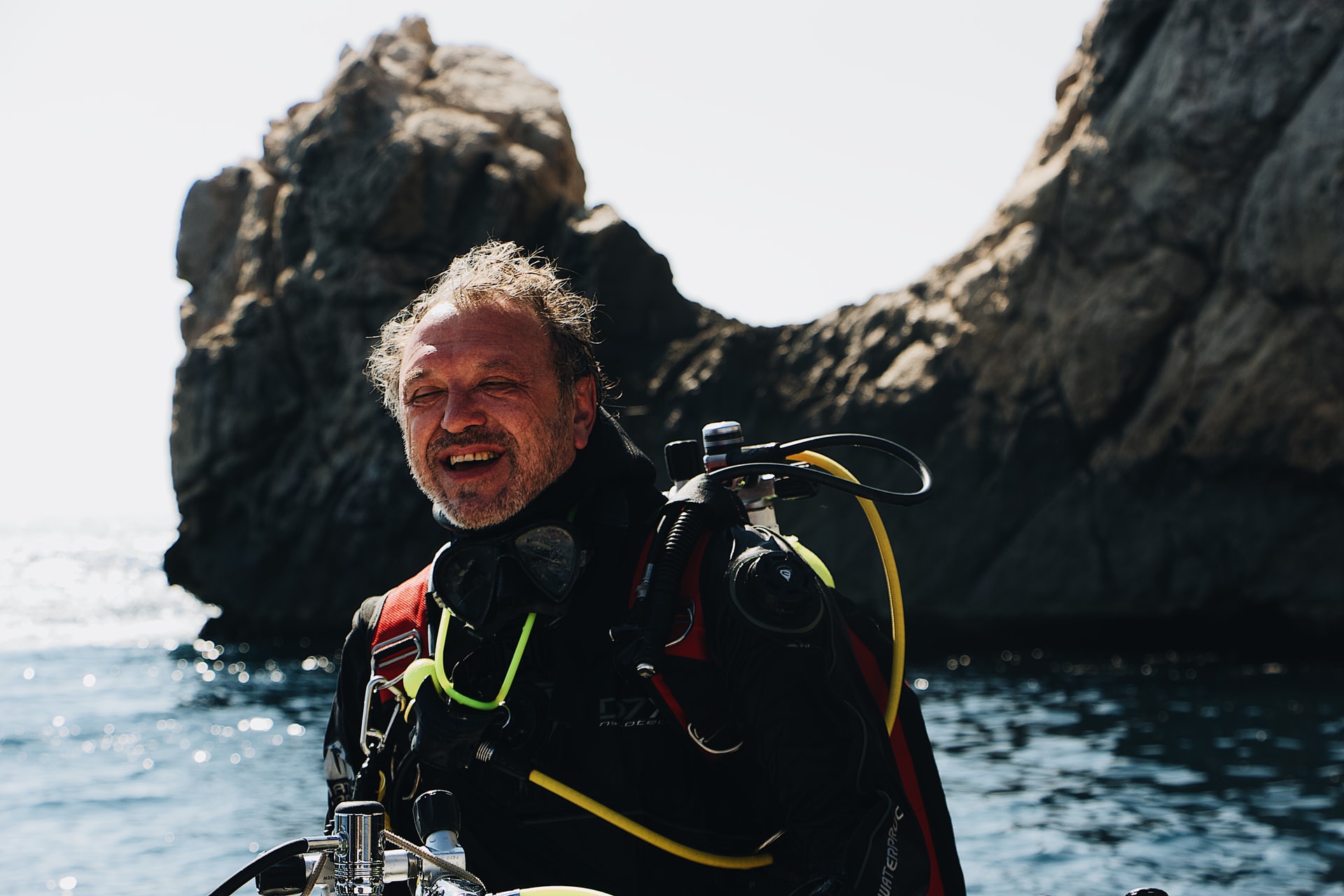
At What Age Should You Stop Scuba Diving? (+9 Tips for Older Divers)
-
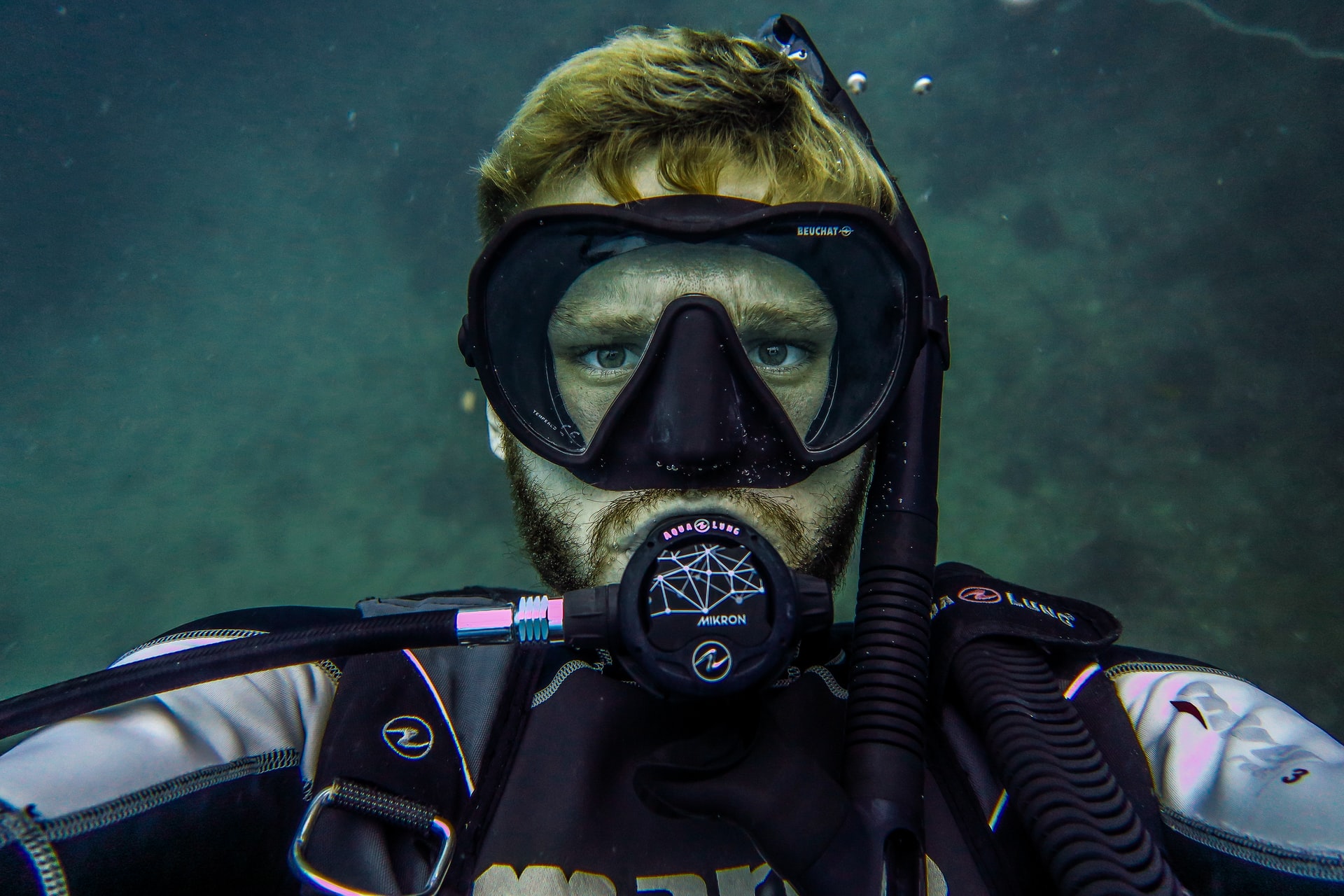
Should I Shave Before Scuba Diving? Crucial Facts (+9 Helpful Tips)
-
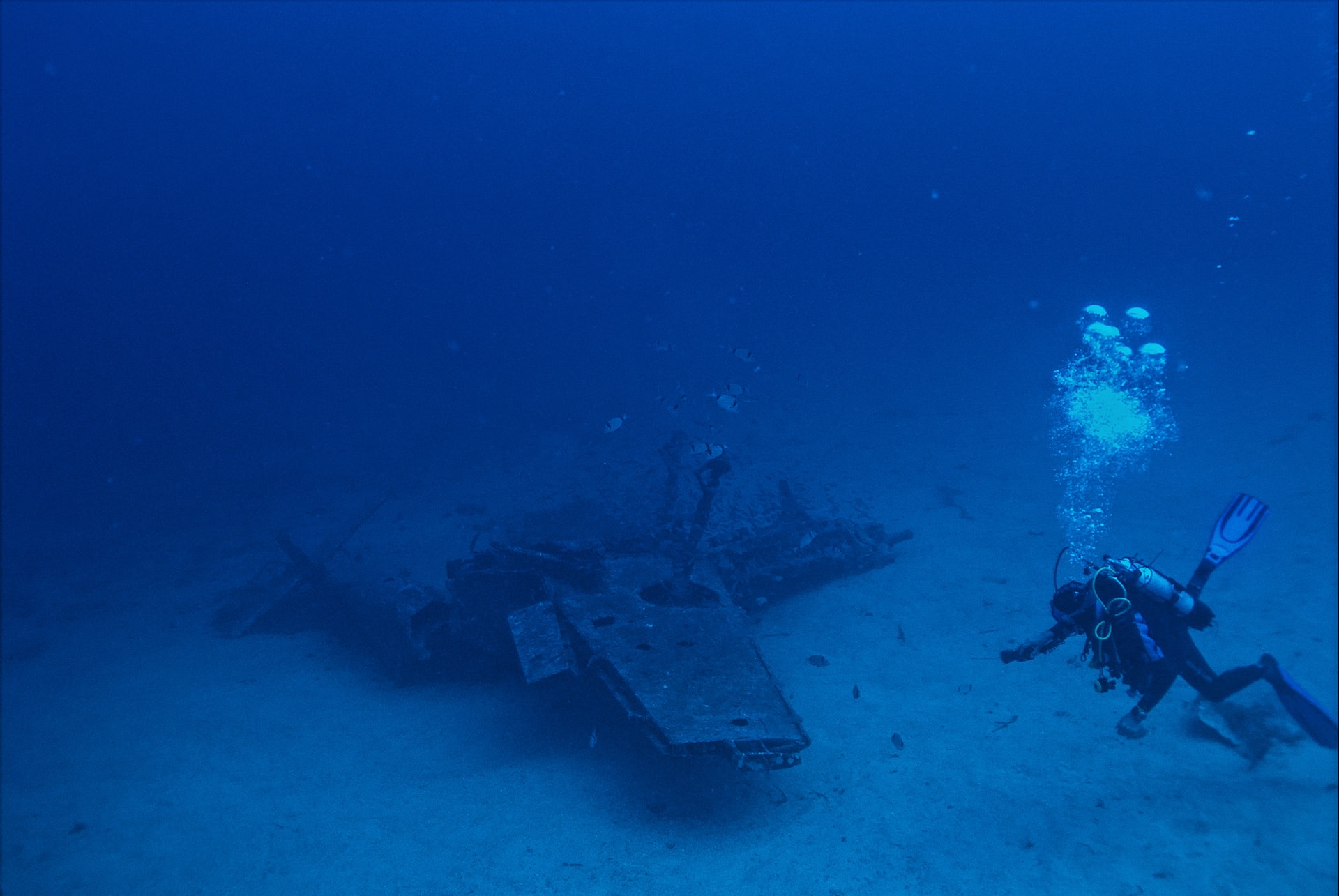
Why Do Scuba Divers Use Helium? (+Its Pros & Cons)
-
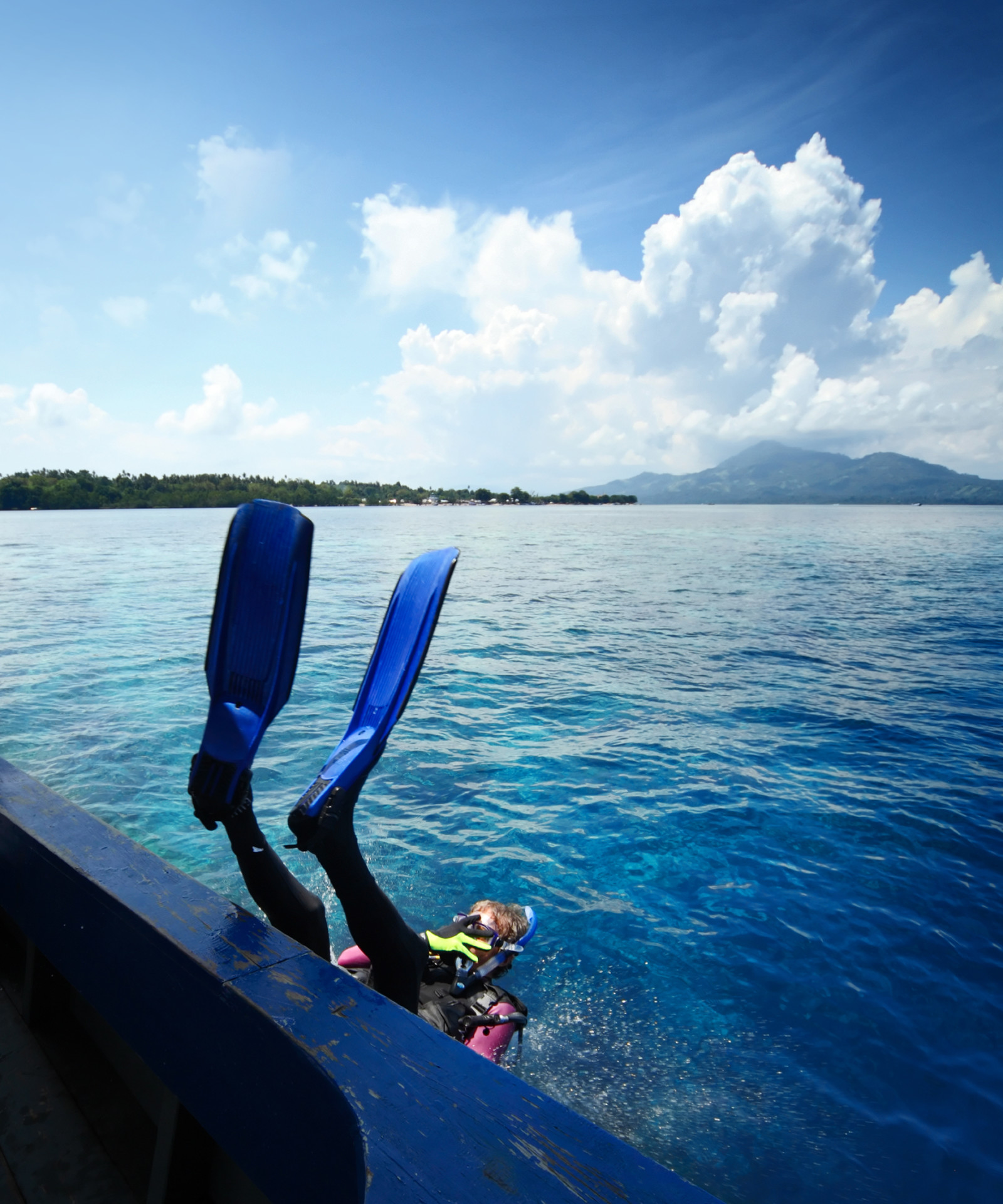
Why Do Scuba Divers Go in Backwards? (+3 Alternative Entries)
-
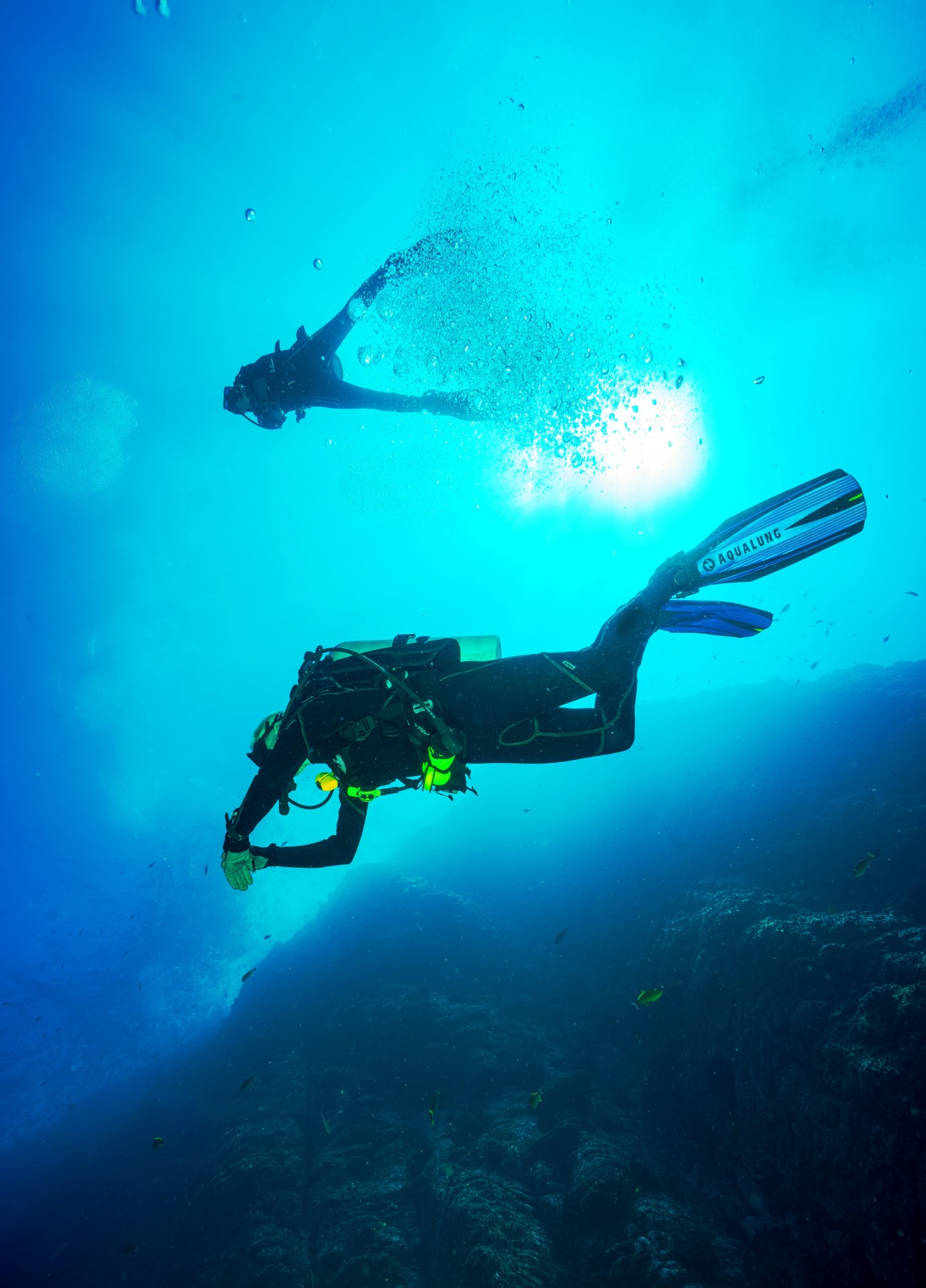
How Do Scuba Divers Sink and Float? (+Tips to Get It Right)

